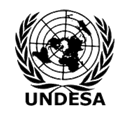UN Under-Secretary-General for Economic and Social Affairs Wu Hongbo, in an editorial in the 'Huffington Post,' has outlined next steps following on the outcome of the UN Conference on Sustainable Development (UNCSD, or Rio+20), which concluded a year earlier in Rio de Janeiro, Brazil.
 25 June 2013: UN Under-Secretary-General for Economic and Social Affairs Wu Hongbo, in an editorial in the ‘Huffington Post,’ has outlined next steps following on the outcome of the UN Conference on Sustainable Development (UNCSD, or Rio+20), which concluded in June 2012 in Rio de Janeiro, Brazil.
25 June 2013: UN Under-Secretary-General for Economic and Social Affairs Wu Hongbo, in an editorial in the ‘Huffington Post,’ has outlined next steps following on the outcome of the UN Conference on Sustainable Development (UNCSD, or Rio+20), which concluded in June 2012 in Rio de Janeiro, Brazil.
In the column, Wu emphasizes that Rio+20 “renewed the commitment of leaders to put their countries on a path towards improving people’s lives today while preserving the planet for future generations.” He discusses the agreement reached to develop a new set of Sustainable Development Goals (SDGs) building on the achievements of the Millennium Development Goals (MDGs).
Wu explains that even if all MDGs are achieved by 2015, much will remain to be done to eradicate extreme poverty and address climate change and other growing environmental threats. He said governments recognize that: future goals must address the complex challenges facing the world today and in the coming decades; and new economies must be built that can move people out of poverty, withstand shocks and adapt to the growing impacts of climate change. According to Wu, UN Member States are now deliberating on such SDGs and will present a proposal to the UN General Assembly (UNGA) in 2014. He notes that the SDGs are expected to be transformative, universal and equitable, and guide all economies on more sustainable development paths.
Wu also emphasizes that achieving sustainable development requires cooperation among all countries and the engagement of all actors to develop and deploy technologies. On the importance of voluntary commitments and partnerships, he points to the 1,382 already registered since Rio+20 that are worth over US$600 billion. While noting that many countries are already investing in renewable energy technologies and low-carbon public transport, he writes that, considering the scale of economic transformation required, cleaner and more affordable technology must be developed and disseminated on “a grander scale.”
In conclusion, Wu writes that a future “where poverty is history and where all human beings can achieve the full development of their potential and live lives of dignity, while consuming and producing within the limits of the planet, is within our reach.” [Huffington Post Editorial]